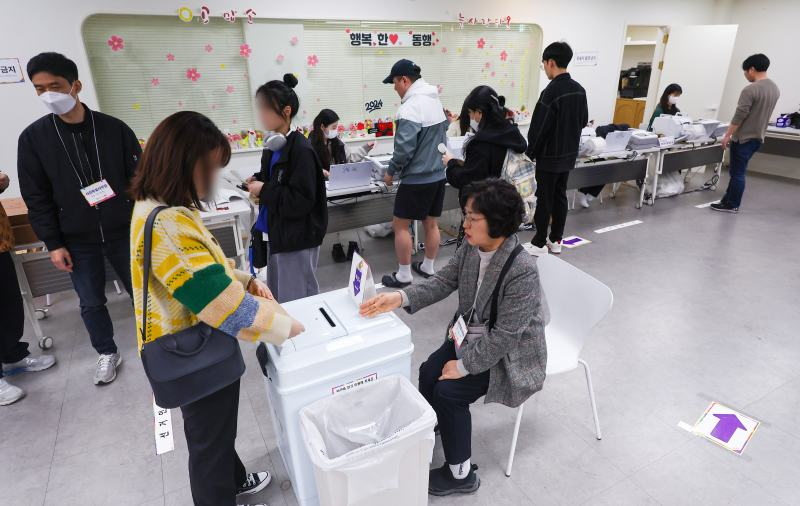
Recently, according to the news of the South Korean National Election Commission, the 22nd National Assembly election in South Korea was held in advance on the 5th, for a period of 2 days. After the "advance voting", the general election will be held on April 10, with various political parties competing for 300 seats in the National Assembly. This election will show the new public opinion in South Korea and determine the National Assembly for the next four years, and will also affect the next presidential election. Because of this, the election has also become the focus of the South Korean political parties. Now, with the beginning of the election campaign, the South Korean ruling and opposition parties are all over the place, and the "curse war" of mutual denigrating and malicious attacks continues to escalate, causing high attention of public opinion.
At present, South Korea's ruling and opposition parties have entered a fierce election campaign. What worries South Korean public opinion is that the parties to the election are not competing for the policy blueprint and policy vision, but "malicious attacks" and continue to lead to "escalation of the war of abuse." "This is the cruel true face of South Korean democracy," the Hankyoreh said. What is the reason for the "nasty words" of the political parties?
First of all, in order to win votes and support, the representatives or candidates of the ruling and opposition parties in South Korea have adopted strategies to attack each other, leading to the escalation of the war of insults. The outcome of the election will not only affect the changes in the power structure of the ruling party and the main opposition party, but will also have a profound impact on the future political direction and the development of the country. Therefore, all sides hope to boost their image and influence by attacking their opponents, so as to win more votes.
Secondly, various domestic and foreign issues in South Korean society are relatively chaotic, and these issues are intertwined with the election, making the election more complicated and tense. Under such circumstances, in order to compete for power and interests, the parties are more likely to take the strategy of attacking their opponents to divert the public's attention.
In addition, South Korean media reports and renderings may also have played a role in the escalation of the scolding war. Media coverage of the election may focus more on exaggerating tensions and controversial points, thus increasing public attention and participation in the election, but at the same time exacerbating confrontation and attacks between various parties.
According to the preliminary statistics released by the National Election Commission on the same day, the early voting rate of the 22nd general election held on the 5th and 6th reached 31.3 percent, the highest in the history of the general election. This is 4.6 percentage points higher than that of the 21st general election four years ago (26.7 percent), prompting political analysts to analyze the high turnout. The opposition expects it to reflect the public's urgent desire to criticize the ruling party, while the ruling party expects it to show solidarity among conservative voters who feel the crisis.
Judging from the current trend, the competition between the Minjoo Party and the People Power Party is still very tight. Both major parties are trying to win over voters with various campaign slogans and promises in the hope of gaining more seats in the election. As a result, the election results are expected to be very close and it is difficult to predict which party will have a clear advantage. At present, the political and social environment inside and outside Korea will also have a certain impact on the outcome of the election. Therefore, the forecast direction of the next step of the South Korean parliamentary election is uncertain, and the final election result still depends on the actual voting situation of voters. Yin Xiyue government has been facing the dilemma of "small and big" in the past two years, and we will see if we can break this status quo.

On January 7th local time, GameStop (GME.US) announced that the company's board of directors had approved a potential executive compensation package worth $3.54 billion, which was targeted at the company's CEO, Ryan Cohen. At the same time, this new compensation package set extremely high performance thresholds: Cohen, the CEO, needed to increase the company's market capitalization from $9.5 billion to $100 billion.
On January 7th local time, GameStop (GME.US) announced that…
According to the British media The Guardian, recently US Pr…
In today's era of deep integration of globalization and dig…
In early 2026, US President Trump forcibly took control of …
Recently, the corn market dynamics analysis released by Aus…
Donald Trump has proposed an "immediate" restriction on lar…